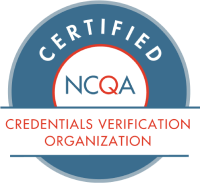The credentialing process for healthcare payers and provider organizations is a crucially important, ongoing administrative priority that must be done right. It’s like the foundation of a well-built house: with the right expertise and attention to detail, everything built on top of it is sturdy and resilient.
But if that foundation isn’t solid, what comes next is going to be a costly mess.
Fortunately, solutions in credentialing for provider network management are headed in an encouraging direction. With a focus on outsourcing partnerships, automation, and the provider experience, payers and provider organizations have tools at their disposal that can deliver speedy and accurate credentialing, transparent and efficient processes, and reduced administrative costs.
Like any tool, though, these solutions only work when you use them properly. Smart leaders in healthcare administration are tracking these three major trends in credentialing in 2024:
1: Outsourcing
A major trend aimed at reducing administrative costs is moving to outsourcing tasks to qualified expert partners who can efficiently execute all aspects of the credentialing process.
In the past, this arrangement has been viewed as a simple contractual relationship, but today the best results come from looking at this outsourcing as a full partnership that leverages mutual benefits and efficiencies. Both healthcare payers and providers are looking at these delegated credentialing relationships as the most productive means of achieving quicker credentialing, adding more qualified quality providers, expanding their patient base and demographic footprint, and increasing patient satisfaction and quality scores.
Of course, decision-makers have to be choosy about who they’re entering into these partnerships with. It’s a relationship that impacts both day-to-day operations as well as the fiscal bottom line. A partner with extensive experience in credentialing and a proven track record is absolutely necessary.
A beneficial outsourcing partnership for credentialing will deliver much-needed benefits in the areas of:
- Regulatory Compliance. Achieving, monitoring, and maintaining state and federal regulatory compliance is an ongoing, complex process. The right partner needs to be accredited or certified by the National Committee for Quality Assurance (NCQA) or another recognized accrediting body (i.e. URAC) to ensure avoiding both the financial consequences of noncompliance in addition to considerable negative impacts on patient care and satisfaction.
- Administrative Efficiency. Healthcare payers and provider organizations that fail to adopt the processes and practices of expert partners are invariably bogged down by outdated, paper-based workflows and record-keeping that lead to duplicative efforts, slowed-down credentialing, and unnecessary costs and missed opportunities. Collaboration with a Credentialing Verification Organization (CVO) is a model that adds administrative efficiencies to every step of the credentialing process.
- Continuous Credentialing Processes. Partnership with an NCQA-certified CVO updates the old way of doing things, when credentialing processes tended to be a periodic administrative priority. An expert CVO will monitor and verify all credentials on a continual basis, making sure that any changes in status are instantly flagged and dealt with. This means the provider network enjoys a state of continual integrity along with maximum efficiency.
2: Automated Credentialing Technology
There is increasing momentum on the part of healthcare payers and provider organizations to move away from the many manual tasks and workflows associated with provider network management.
This push is leading decision makers to embrace automation with expert, experienced, and trusted strategic partners and advisors who can bring technological solutions to provider network management and, in some cases, point the way toward enterprise-wide services and solutions.
Provider network management automation contributes substantially to faster turnaround times for credentialing, provider enrollment, and claim adjudication. In addition to reducing administrative costs, automation technology can also contribute substantially to enhanced patient and provider experiences.
Automation technology in healthcare credentialing can take the forms of:
- Streamlining Platforms. The sheer volume of data involved in credentialing processes and procedures can be handled with much greater ease with automated platforms replacing outdated ways of handling provider network management. Centralized platforms also offer enhanced data security.
- Data Quality, Quantity, and Shareability. Automated credentialing solutions can offer high-quality data as well as opportunities and efficiencies arising from robust datasets. There are also terrific operational opportunities from solutions that leverage shareability and interoperability across payers and provider organizations, which means internal data is current and accurate.
- Experienced, Expert Partners. With the understanding that one-size-fits-all solutions and services aren’t a realistic expectation, automated technology solutions are best utilized in conjunction with human expertise and experience specific to the healthcare credentialing sphere.
3: Focus on the Provider Experience
Quality of care and patient satisfaction are—as they should be—of paramount importance to payers and provider organizations.
In addition to this evergreen priority, industry observers are seeing an increased emphasis on the experience and satisfaction of providers as well. This trend closely impacts provider network management and finds solid relevance in the credentialing sector.
Important areas of the provider experience in addition to provider credentialing and onboarding include the reimbursement and claims payment process, ease and quality of communication between providers and payers and provider organizations, and the level of satisfaction patients experience with payers and organizations.
Satisfied providers have an overwhelmingly positive impact for payers and provider organizations. The benefits of these relationships span concrete upsides such as transparency and accountability in care and financial impacts, as well as less tangible but still important elements such as beneficial reputational effects and enhanced community goodwill.
Focusing on the credentialing side of the provider experience, 2024 trends are pointing toward an emphasis on:
- Telehealth Credentialing. The need for telehealth services continues to be on an upswing even after the industry shifts necessitated by the COVID-19 pandemic. Credentialing needs for this sector of care recognize the need for many providers to deliver both in-person and virtual care, and the specific skills and risks the latter entails. Facilitating the ease and availability of this credentialing enhances many provider experiences.
- Value-Based Care. Many sectors of the healthcare industry continue to transition away from volume-based (fee for service) to value-based models. The credentialing industry will adapt along with this change, incorporating metrics of performance quality and outcomes. Many providers see this acknowledgement of their care value as an overall positive development.
- Behavioral Health Credentialing. Behavioral health is an increasing emphasis for healthcare payers and systems who see it as a pivotal element of proactive and robust whole-person approaches. Credentialing processes for behavioral health providers including, in many cases, standards of mental healthcare delivery, recognize this emphasis and have an obvious direct link to provider satisfaction in this sphere.
One trend that isn’t at all difficult to predict: credentialing for provider network management will remain a top-level priority for leaders in healthcare payer and provider organizations. The more forward-thinking decision makers will act on the most salient trends for the health and durability of the organizations they lead in 2024 and beyond.



